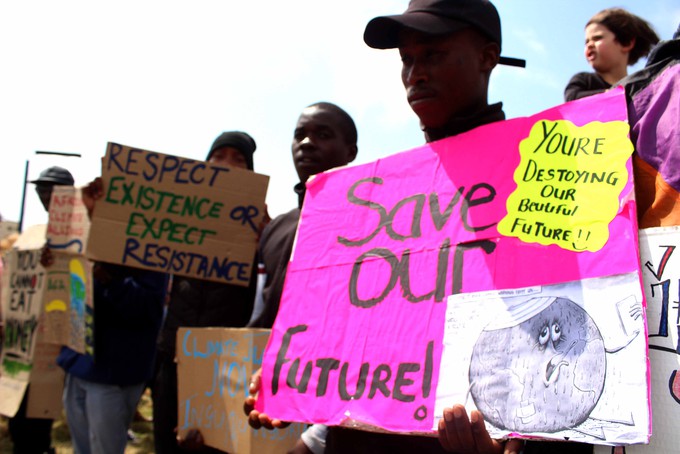
16 September 2022

Archive photo: Masixole Feni
The media has “failed in its role to warn society about climate collapse”, said science writer Leonie Joubert at the launch of an online climate reporting guide for South African journalists on Friday.
The guide was written by Fossil Free South Africa, a campaign for fossil fuel divestment, with input from civil society organisations and scientists, as a resource for journalists covering climate, environment and energy-related stories. It includes tips for reporters and editors on how to improve their reporting on climate change and how to give the issues “due prominence”.
Joubert said that the media must hold the government and the private sector to account for its role in the climate disaster. She said that journalists should write more about the systems that produce climate change.
“Governments aren’t acting fast enough to address this climate crisis,” said David Le Page, coordinator at Fossil Free SA. “This is a very fast-growing crisis. It’s not something linear and predictable.”
Thando Lukuko, of the South African Climate Action Network, said during the launch that there is a need for reporting on communities that are impacted by the climate crisis. He said that climate change news needs to be more “people-centric”.
Le Page said that a 2021 Human Sciences Research Council (HSRC) attitudes survey showed that only 20% of South Africans understand that the climate crisis is caused by human actions.
The survey also showed that 44% of South Africans are de facto climate change denialists: 16% of them people believe climate change is not happening, and 28% believe that it is a completely natural phenomenon.
He said the guide looks at many myths about climate change and links to resources, case studies, and experts on climate change.
During his presentation, Le Page said that accurate content, appropriate editorial presentation, accurate context, and enough content were the keys to getting climate journalism right.